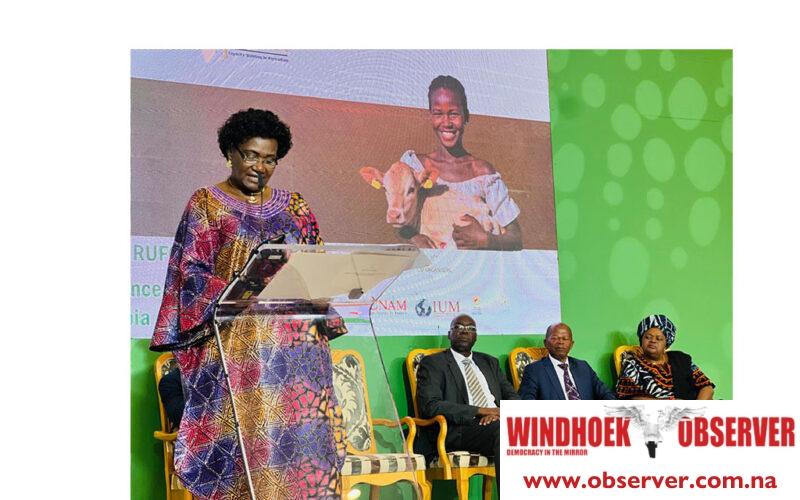Niël Terblanché
Namibia has once again positioned itself at the forefront of agricultural and scientific innovation by hosting the second triennial conference of the Regional Universities Forum for Capacity Building in Agriculture (RUFORUM).
Namibia’s Minister of Higher Education, Training and Innovation, Dr Itah Kandjii-Murangi, stressed at the start of the conference on Thursday the critical role of agriculture in achieving the United Nations’ Sustainable Development Goals (SDGs) 1 and 2—No Poverty and Zero Hunger.
“The theme of this year’s conference, ‘Operationalising Higher Agricultural Education and Research Ecosystems for Innovation, Industrialisation, and Economic Development in Africa: A Call for Action,’ resonates deeply with our collective goal of transforming the agricultural sector into a key driver for wealth creation and improved quality of life across the continent,” she said.
Kandjii-Murangi also pointed to the alignment of the conference’s objectives with the African Union’s 2003 Maputo Declaration on Agriculture and Food Security and the 2014 Malabo Declaration on Accelerated Agricultural Growth and Transformation.
“These frameworks commit African states to allocating at least 10% of national budget resources to agriculture, with a particular emphasis on science, technology, and innovation,” she said.
The Minister drew attention to the importance of modernising agriculture in the face of climate change, noting that Namibia, as one of the driest countries in Africa, is already experiencing the effects of increased droughts, floods, and crop failures.
She praised the conference organizers for including a special side event on water for agricultural production, which she described as a vital element in securing agriculture’s future under the threat of climate change.
Reflecting on the challenges of youth unemployment in Africa, Kandjii-Murangi emphasized the need to harness the continent’s youthful population by equipping them with the necessary skills for the future of work.
“Scholars and scientists are called upon to propose policy recommendations that would make agriculture more productive and resilient, thus addressing unemployment and driving job creation,” she urged.
She also stressed the necessity for Africa to become a generator of scientific knowledge and innovations rather than merely a consumer.
“We must ensure that the African continent contributes solutions to industry, communities, and governments, thereby enabling our people to live decent lives,” she said.
The conference, which started on Thursday and ends today, has brought together government officials, academics, and private sector stakeholders from across Africa and beyond, fostering an environment of collaboration and knowledge-sharing.
“By hosting this event, Namibia reaffirmed its commitment to advancing agricultural innovation, not only within its borders but throughout the continent,” she said.
Kandjii-Murangi expressed hope that the RUFORUM conference will produce actionable outcomes that will contribute to the transformation of agriculture in Africa, ensuring that its practice eventually becomes a cornerstone of economic development and social progress.




